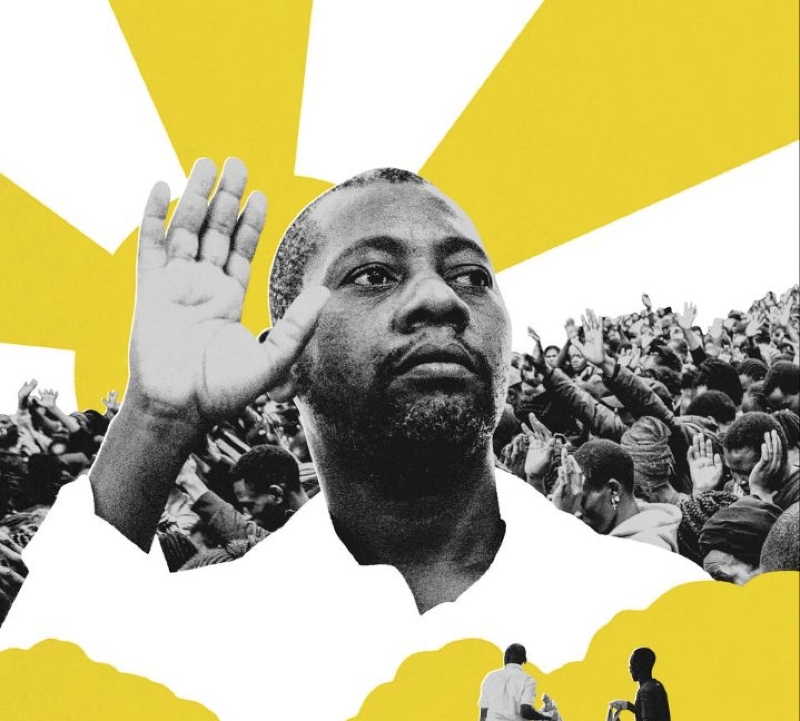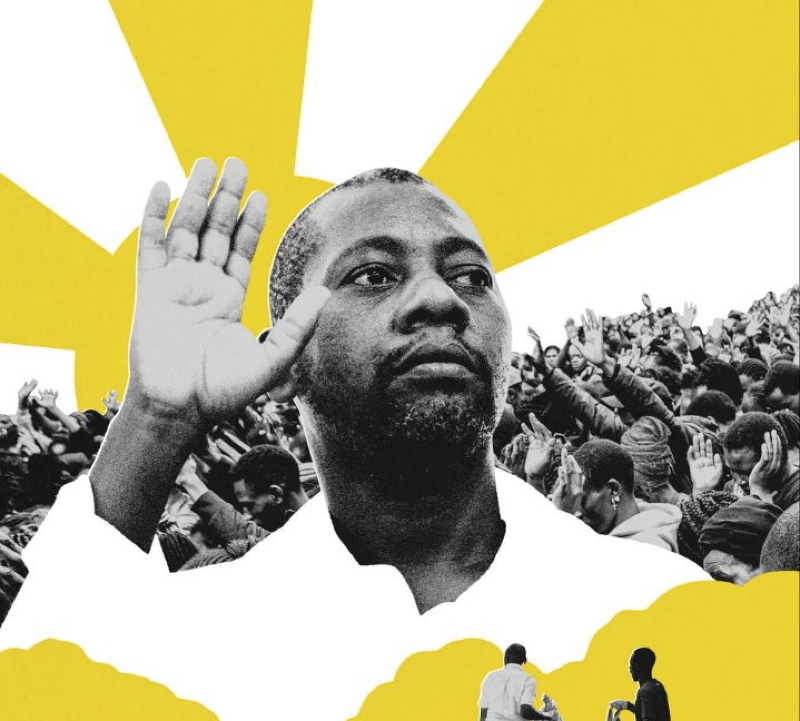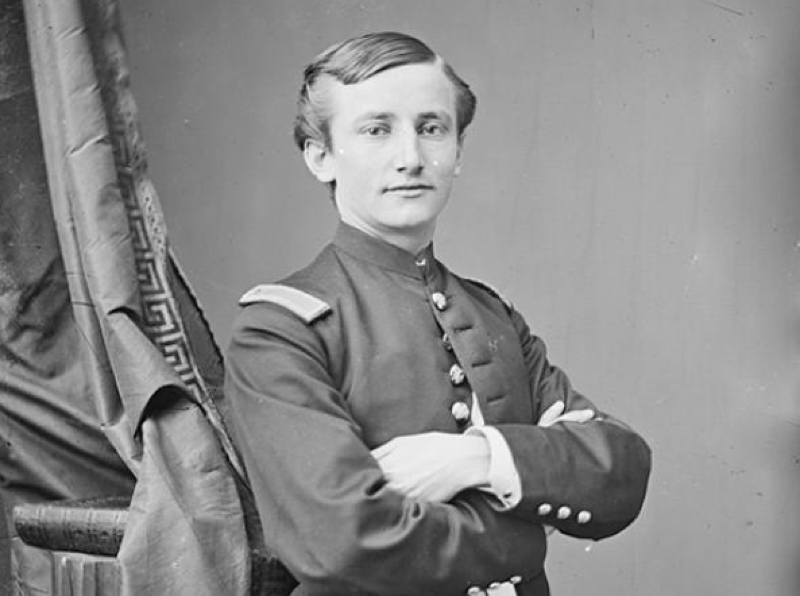A pastor led his flock into the woods and hundreds are dead

Hi everyone! Mathew Ingram here. As many of you probably know, I am able to continue writing this newsletter in part because of your financial help and support, which you can do either through my Patreon or by upgrading your Ghost subscription to a monthly contribution. I enjoy gathering all of these links and sharing them with you, but it does take time, and your support makes it possible for me to do that. And I appreciate it, believe me! If you like this newsletter, please share it with someone else. Thanks for being a reader!

From The New Yorker: "Everyone hopes for a miracle. And in Kenya—where evangelical Christianity is so popular that the President frequently prays with preachers during official events—the more miracles a pastor performs, the more followers he will gain. Some swiftly build large congregations and become multimillionaires. In 2018, Halua Yaa, a woman in the coastal town of Malindi, heard about a pastor named Paul Mackenzie, who, it was said, could heal the sick. Mackenzie ran a Pentecostal church called Good News International Ministries, on a spacious compound in Malindi, where he also lived. He urged his followers to avoid television, sports, and other secular pastimes, to refuse Western medicine, and to take their children out of school."
She was an advocate for the disabled but she probably never actually existed

From IGN: "On March 4, 2019, the accessibility community mourned a prominent advocate: Susan Banks. Banks’ partner, Coty Craven, announced her passing on social media platforms such as Twitter/X. The industry lamented the loss of an individual that helped raise awareness for accessibility in games, particularly for Deaf and hard-of-hearing individuals. However, in the years since Banks’ alleged death, mounting evidence and accounts from those close to her work suggest that she was not the person she claimed to be. In fact, some are convinced that Banks may never have existed at all. Her various jobs are said to have included being a professional model, an asset manager at a financial firm, and a professor of Deaf Studies at Gallaudet University, all before the age of 30. IGN reached out to Gallaudet University’s Deaf Studies program, and they said nobody by the name of Susan Banks was ever employed at the University."
What happened to the winner of McDonald’s $1 Million Flexi-Disc contest?

From Vice: "On a cold February day in Galax in 1989, a 13-year-old boy named Scotty Landreth was rifling through a stack of newspapers looking to start a fire in his family’s wood stove. Then young Scotty noticed a sudden flash. Even better to him than gold, it was shiny and black—a record! Scotty ran for his AM/FM turntable. It was the very first record he could call his own. He put the vinyl on, dropped the needle, and a song began to play. When it ended, a voice came on and prompted Scotty to call a number to claim his prize. “I figured we might have won a car or free meals,” Scotty said. “I never, ever, could have thought that it’d be a million dollars.” What transpired in the nearly 30 years since the story unfolded is bittersweet—but maybe not quite in the way you’d expect."
Scientists uncover a blow from the past: 17th-century brains contain cocaine

From Popular Mechanics: "According to a new study published in the Journal of Archaeological Science, an analysis of brain tissue from human remains located at the Ca’ Granda crypt in Milan, Italy, shows evidence of active components of the coca plant. The crypt was used as a burial place for the Ospedale Maggiore—a world-class hospital in the 17th century—and the study’s lead author, University of Milan’s Gaia Giordano, previously found evidence of opium use among the cadavers of this crypt. But this new study extends that the era’s drug list by also including cocaine. Toxicological analyses were performed on preserved human brains, backdating our understanding of the presence of the plant by almost two centuries. Given that the plant was not listed inside the detailed hospital pharmacopeia, it may not have been given as a medicinal remedy but may have been used for other purposes.”
The youngest officer in the US Army joined up when he was 10 years old

From Battlefields.org: "When President Abraham Lincoln in May 1861 issued the call for volunteers to serve in the Union Army for a three-year term, one of those who tried to answer was Ohio resident John Clem. Not yet 10 years old, Clem’s service was refused by the newly formed 3rd Ohio. Undeterred, Clem later tried to join the 22nd Michigan, where his persistence won over the unit’s officers. They agreed to let him follow the regiment, adopting him as a mascot and unofficial drummer boy. When Confederate forces surrounded the unit, Clem shot the colonel in command and successfully made his way back to Union lines. For his actions, Clem was promoted to sergeant, the youngest soldier ever to become a noncommissioned officer in the U.S. Army"
This bird species was extinct in Europe but now it’s back and humans must help it migrate

From Associated Press: "How do you teach a bird how, and where, to fly? The distinctive Northern Bald Ibis, hunted essentially to extinction by the 17th century, was revived by breeding and rewilding efforts over the last two decades. But the birds — known for their distinctive black-and-iridescent green plumage, bald red head and long curved beak — don’t instinctively know which direction to fly to migrate without the guidance of wild-born elders. So a team of scientists and conservationists stepped in as foster parents and flight instructors. The efforts of Fritz and the Waldrappteam, a conservation and research group based in Austria, brought the Central European population from zero to almost 300 since the start of their project in 2002."
Playing slices of watermelon like a piano
The kiwi drop is insane 😭🔥 pic.twitter.com/v6yEj8ucLK
— i like food (@messedupfoods) August 25, 2024
Acknowledgements: I find a lot of these links myself, but I also get some from other newsletters that I rely on as "serendipity engines," such as The Morning News from Rosecrans Baldwin and Andrew Womack, Jodi Ettenberg's Curious About Everything, Dan Lewis's Now I Know, Robert Cottrell and Caroline Crampton's The Browser, Clive Thompson's Linkfest, Noah Brier and Colin Nagy's Why Is This Interesting, Maria Popova's The Marginalian, Sheehan Quirke AKA The Cultural Tutor, the Smithsonian magazine, and JSTOR Daily. If you come across something interesting that you think should be included here, please feel free to email me at mathew @ mathewingram dot com



